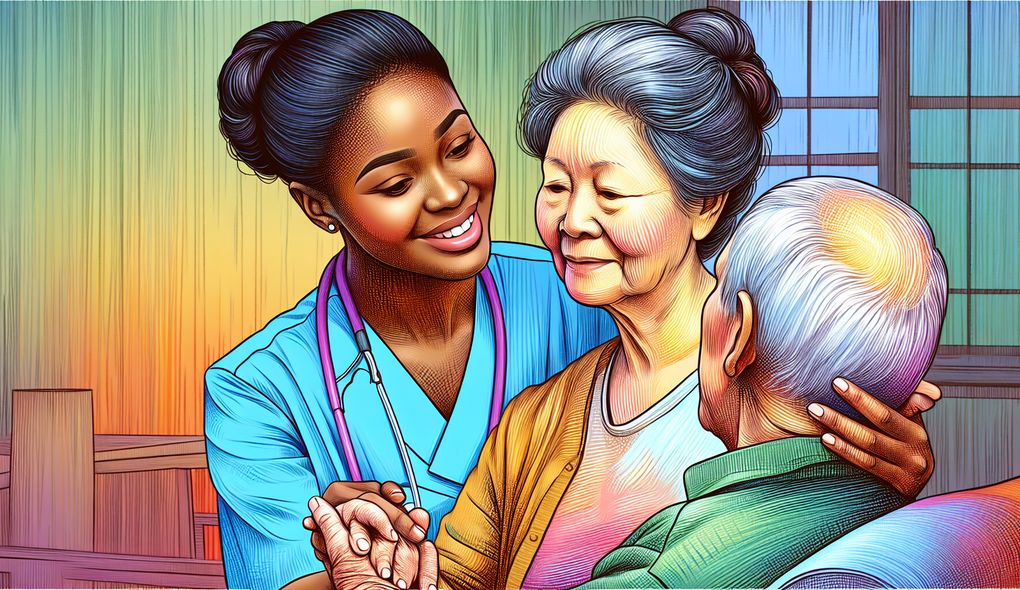Can you discuss a time when you had to navigate complex ethical dilemmas in providing hospice care?
SENIOR LEVEL

Sample answer to the question:
Yes, I can discuss a time when I had to navigate complex ethical dilemmas in providing hospice care. One instance that comes to mind is when I had a patient with advanced dementia who was nearing the end of life. The patient's family had conflicting opinions on whether to continue aggressive medical interventions to prolong life or to focus on comfort care and let nature take its course. As the hospice nurse, I had to carefully navigate this sensitive situation. I facilitated a family meeting to encourage open communication and helped them understand the patient's condition and prognosis. We discussed the patient's wishes and the ethical implications of different treatment options. Ultimately, the family agreed to transition to comfort-focused care, and I provided emotional support throughout the process.
Here is a more solid answer:
Certainly! Let me provide you with a more comprehensive response. In my role as a hospice nurse, I consistently encounter complex ethical dilemmas that require careful navigation. One particular situation stands out in my mind. I was caring for a patient with advanced stage cancer who was experiencing severe pain. While discussing pain management options with the patient, they mentioned their desire to explore alternative therapies, specifically medical marijuana. However, the use of medical marijuana is still a topic of ethical debate in the medical community and not yet fully legalized in our state. To address this dilemma, I engaged in interdisciplinary collaboration by consulting the patient's oncologist, the hospice team, and a pain management specialist. We collectively reviewed the patient's medical history, considered relevant research and medical evidence, and discussed legal and ethical considerations. Together, we determined that the patient could enroll in a clinical trial focused on alternative pain management methods. This decision not only respected the patient's autonomy, but also ensured their safety and adherence to legal and ethical standards. Throughout this process, I maintained open and honest communication with the patient and their family, explaining the potential risks, benefits, and uncertainties of the clinical trial. This proactive approach helped foster trust and provide the necessary support during a complex ethical decision-making process.
Why is this a more solid answer?
The solid answer provides a more comprehensive response by detailing a specific situation and demonstrating the candidate's expertise in hospice and palliative care principles, collaborative skills, emotional intelligence, and knowledge of healthcare regulations and ethics. However, it could further improve by discussing more examples of complex ethical dilemmas and showcasing the candidate's ability to navigate them effectively.
An example of a exceptional answer:
Absolutely! Let me share with you an exceptional answer that dives deeper into a complex ethical dilemma I encountered as a hospice nurse. I was involved in a case where a patient with end-stage heart failure expressed a strong desire to stop all life-sustaining treatments and pursue medical aid in dying (MAID) as allowed by our state law. However, the patient's adult children vehemently opposed this decision, citing religious and ethical beliefs. This created a profound ethical dilemma that required careful consideration of the patient's autonomy, the family's values, and the legal and ethical implications of MAID. To navigate this complex situation, I initiated transparent and empathetic discussions with the patient, their family, and the interdisciplinary care team. I listened attentively to their concerns, addressing their fears, and providing unbiased information about end-of-life options and the legal framework surrounding MAID. Simultaneously, I sought guidance from the hospice ethics committee and consulted with legal advisors to ensure compliance with the state regulations. Recognizing the need for emotional support throughout this process, I involved the hospice social worker to provide counseling and facilitate family meetings. Ultimately, after several honest conversations and facilitated mediation sessions, we reached a consensus that respected the patient's autonomy while addressing the family's anxieties. The patient received comprehensive palliative care, including aggressive symptom management and emotional support, to ensure their comfort and dignity until they peacefully passed away. This experience reinforced my commitment to upholding ethical standards while providing compassionate end-of-life care.
Why is this an exceptional answer?
The exceptional answer provides a detailed and compelling response, presenting a complex ethical dilemma involving end-of-life decisions and contrasting beliefs. It demonstrates the candidate's expertise in hospice and palliative care principles, collaborative skills, emotional intelligence, and knowledge of healthcare regulations and ethics. The answer goes above and beyond by showcasing the candidate's ability to navigate a challenging situation with transparency, empathy, interdisciplinary collaboration, and legal compliance. It exemplifies the candidate's profound commitment to compassionate end-of-life care.
How to prepare for this question:
- Familiarize yourself with ethical principles and guidelines in hospice care, such as autonomy, beneficence, non-maleficence, and justice.
- Reflect on your past experiences in hospice care and identify situations where ethical dilemmas arose. Think about the decisions you made, the ethical considerations involved, and the outcomes of those decisions.
- Study the relevant laws and regulations pertaining to end-of-life care, including medical aid in dying and advance directives.
- Consider the emotional aspect of providing hospice care and think about how you can effectively support patients and families during challenging ethical decision-making processes.
What are interviewers evaluating with this question?
- Expertise in hospice and palliative care principles, practices, and protocols.
- Ability to work as a team member and collaborate with other healthcare professionals.
- Exceptional emotional intelligence to provide sensitive support to patients and families.
- Knowledge of healthcare regulations, medical law, and ethics related to end-of-life care.

